This article was updated 7.1.25 to reflect a business name change.
A cross-country move for a career change is one of the biggest leaps Melissa Martorella has made. The risk paid off.
Growing up in the small town of Winchendon, Massachusetts, Melissa Martorella attended Boston College for undergraduate and Tufts University in the Greater Boston area for graduate school. She spent a few years teaching Spanish before returning to a dream she’d had for a long time: becoming a lawyer.
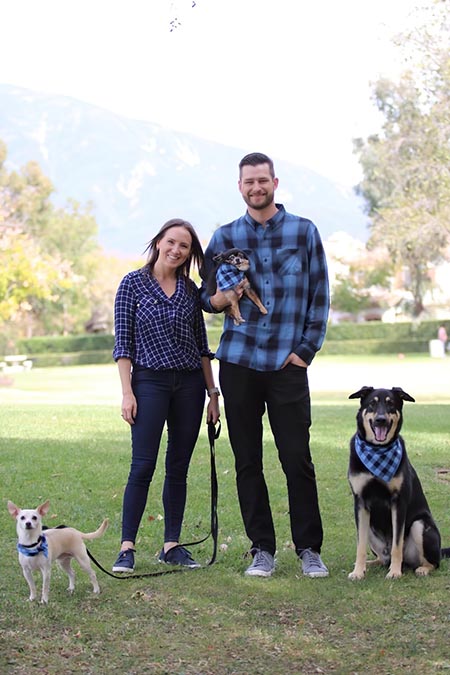
Melissa Martorella pictured with partner, Mark Metrakos, and their three dogs, from left to right, Romeo, Kim (held by Mark), and Wayne.
“I really like the idea of being able to stand up for the answer that you think is the correct one, or being right in an argument, or finding your way to whatever could be right,” she said. “That’s always been something interesting to me.”
She applied to several law schools, including Boston College, but ultimately decided on the University of California, Irvine School of Law. Martorella had enjoyed previous visits to California, and she felt “stuck” in Massachusetts. Her brother and sister had moved away, so she felt pulled to explore.
“I figured if I hated it, I could always go back home. But I thought like I should have this experience of trying to live somewhere else and try a new place,” she said.
The move didn’t go smoothly. Martorella shipped her belongings, and the delivery was delayed. She ended up borrowing her new roommate’s camping mattress and sleeping bag. She didn’t know anyone at her new school, nor did she have any professional connections in the area. But she took it one day at a time, and the move paid off.
During law school, Martorella discovered she didn’t like litigation and preferred the more transactional side of law, such as contracts. When she began looking for jobs in her final year, she found Fortra Law in Irvine, California, was looking for a new attorney. The role was “a perfect match,” she said. She’s been at the firm for more than eight years and is now a partner and director of the banking and finance department.

Melissa Martorella with her senior loan processors (right to left): Christine Abdale, Audie Munoz, Melissa Martorella, Tracy Le, Michael Traylor
A Path with Learning Curves
Martorella acquired many of her skills through on-the-job training. She didn’t know anything about the private lending industry when she started at Fortra Law, she said, though she knew a little about real estate and property through her father’s work as a land surveyor.
She also believes luck and good timing have helped to propel her career, joining the firm when it was still relatively small and learning about all its aspects.
 “Now, my team is bigger than the whole firm was back then. And I think it’s also easier to grow and be a part of something and part of leadership when you’re in earlier,” she said. “I do think I am a smart, capable, hard-working, intelligent person. But I do think there’s a lot to be said of right place, right time—that kind of all aligning.”
“Now, my team is bigger than the whole firm was back then. And I think it’s also easier to grow and be a part of something and part of leadership when you’re in earlier,” she said. “I do think I am a smart, capable, hard-working, intelligent person. But I do think there’s a lot to be said of right place, right time—that kind of all aligning.”
Martorella is part of the Lightning Docs team, led by her colleague Nema Daghbandan. Lightning Docs is an automated loan document solution built from scratch at Fortra Law. Martorella has also had a hand in managing firm operations.
Building Lightning Docs was its own education, she said. Her early work at the firm included creating loan documents for clients in different states. It was an involved process that meant looking for template documents with accurate local verbiage, conforming the state’s specifics to Fortra Law’s standard templates, and finding counsel in each state to review the documents for compliance.
“I think I had a deeper understanding of what was going on faster because I couldn’t rely on just clicking a button to do the things that help us scale now,” she said.
Having done that legwork, she and her colleagues have built a platform that allows them to create accurate and compliant loan documents in a fraction of the time. It was painstaking work to create the master documents.
“I think we had templates for all 50 states for loan documents. But then it was like, well, section 47 of this mortgage is different from section 47 of this deed of trust—it was just all over the place,” she said. “You really have to learn the documents and learn what they’re saying to be able to do something like that. … I learned so much through that process, versus now, my attorneys have no idea what went into that and all they know is ‘Oh, I have a loan in West Virginia and the docs are good,’ and they don’t know what we went through to make sure that it did work the way that it does now.”
In that respect, Martorella refers back to the luck of her timing. If she came to the firm now, the work has been done and the learning opportunity wouldn’t be available for her. Now, however, she understands how the firm can scale and flourish thanks to the work she and others put into the Lightning Docs venture.
“I can have people with less experience doing more difficult transactions now because a lot of it’s automated,” she said.
Charting a Leadership Journey
Putting in the hours and effort she did to help create Lightning Docs has paid off not only for the firm but also for what Martorella called one of her biggest challenges: finding work/life balance.
“I would say a big way of overcoming that and figuring that out is realizing you have to build the team and train people and work with people and loosen up a little bit,” she said.
As her team has grown, she’s learned that delegation affords her the flexibility she didn’t have early on in her career. She admits that letting go of some control has been difficult, but having the right people on her team made it possible.
It has freed up time for her home life: spending time with her partner, Mark Metrakos, and their three dogs, from left to right, Romeo, Kim, and Wayne; traveling to visit family; and reading, exercising, and watching Oscar-nominated films. She also has more time for work-related efforts, including serving on the Education Committee for the American Association of Private Lenders and mentoring her employees.
Mentoring has been critical to advancing Martorella’s knowledge and career. One of the partners at Fortra Law, Nema Daghbandan, took her under his wing from Day One at the firm, she said.
“I used to sit in his office all day, every day, looking over his shoulder, being on calls, learning how to write different provisions,” she said. “I really learned a lot from him, and I think, as a mentor, he did a great job of always making me feel supported, but also giving me the freedom to try to figure things out on my own.”
She uses her experience as a mentee to inform how she helps others on her team.
“I’m teaching people to take a stab at it, try to figure it out, and I’ll help you get it to where it needs to be. But I want you to go for it yourself,” she said. “I think that kind of mentality helped me to succeed.”
From being on both sides of mentorship, Martorella offers these tips for success:
“There’s something to be said for making sure you are mentoring the right person. … If you are the person mentoring others, make sure you’re picking people who have the skills and the drive and the ambition.”
“If you are looking to be mentored, be the person that’s going to make it as easy as possible.” She said she would seek out what she thought the answer to a problem would be and then bring it to Daghbandan, rather than waiting for him to tell her the next step to take.
“If you want to learn something that I know how to teach, get it on my calendar, but I’m not going to put it on your calendar. … If you make it a priority, I will be there for you.” Being a mentee is not like being a student where a teacher initiates the lessons. She emphasized that it’s the mentee ‘s responsibility to be proactive.

In addition to mentorship, Martorella checks in monthly with each member of her team, which includes remote and in-office employees. Her senior team members have more frequent check-ins with everyone, and they stay in constant communication with her, she said.
“I think that gets a bad rap sometimes, especially on social media, that you have overbearing managers, but I don’t think it’s that. I think it’s really that we do care, and people appreciate that. It’s a really good working relationship, especially on our team.”

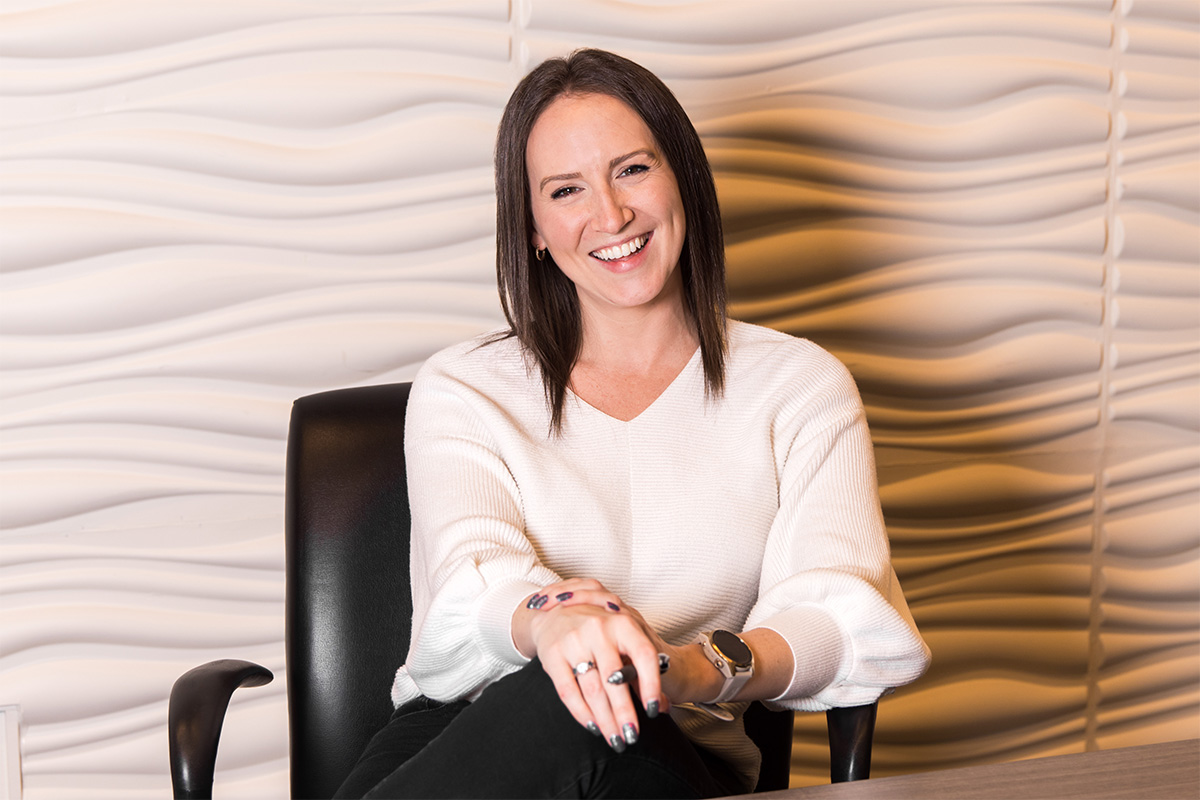

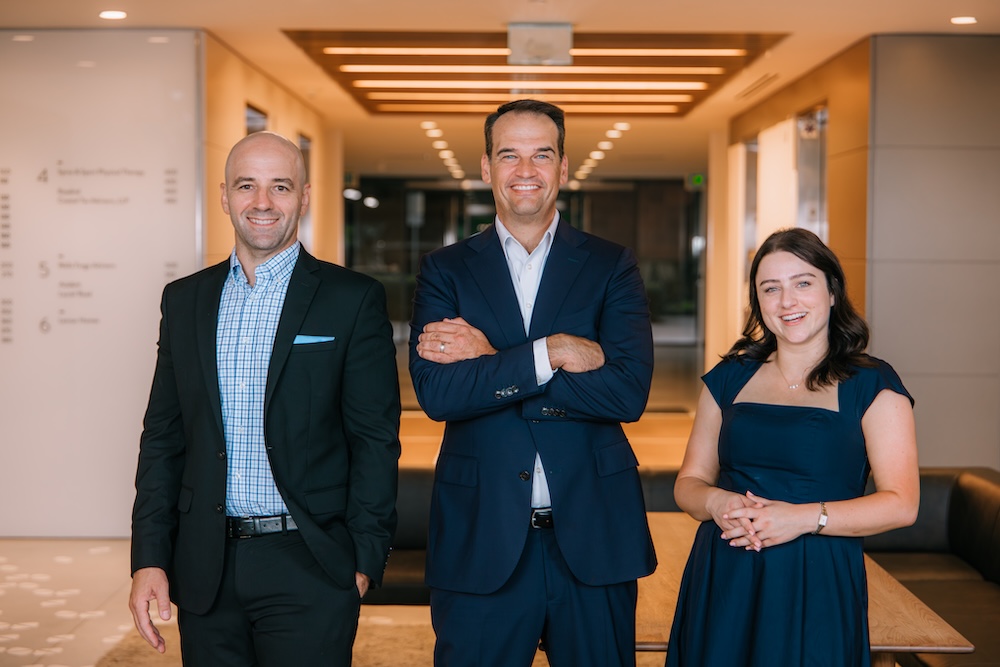

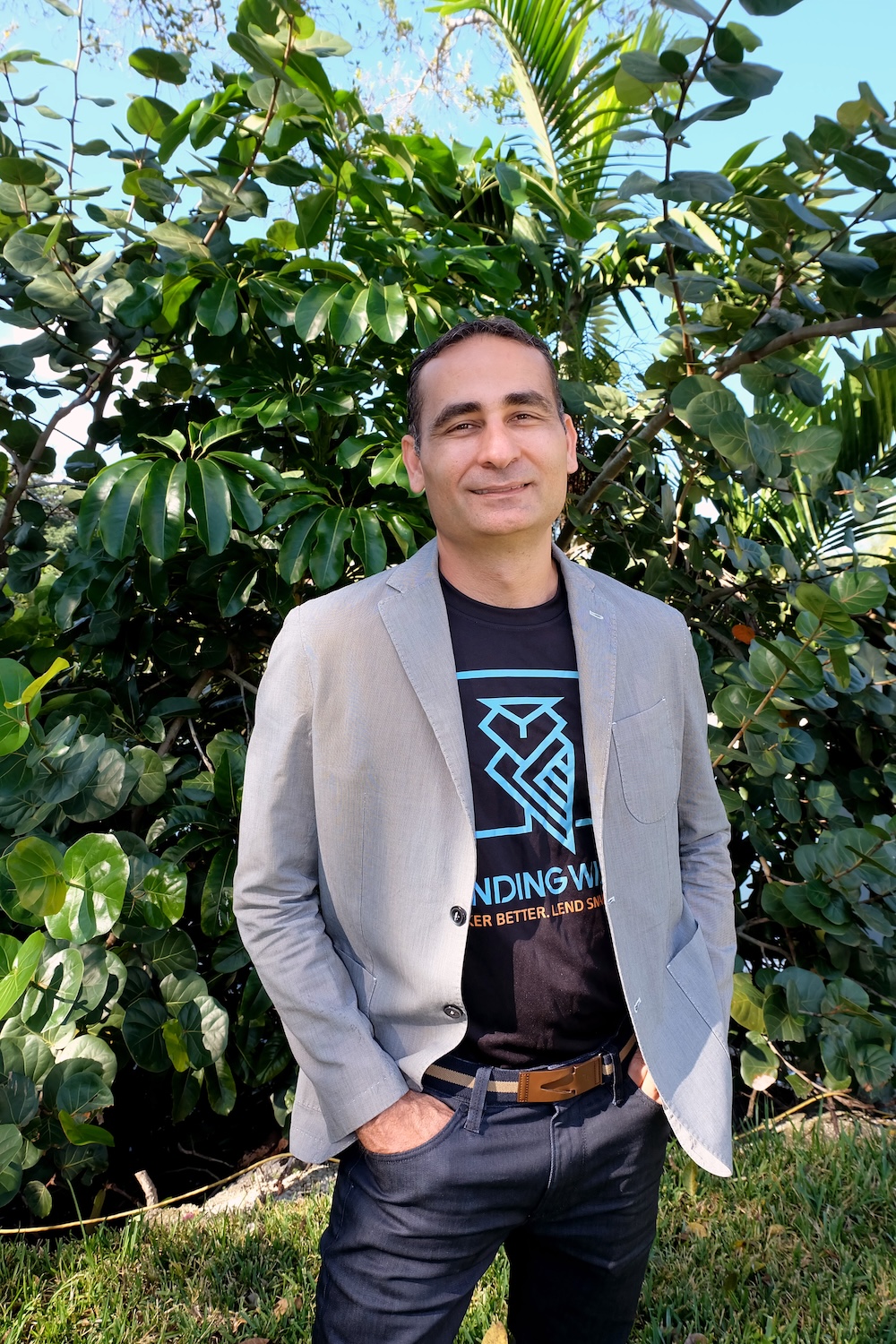
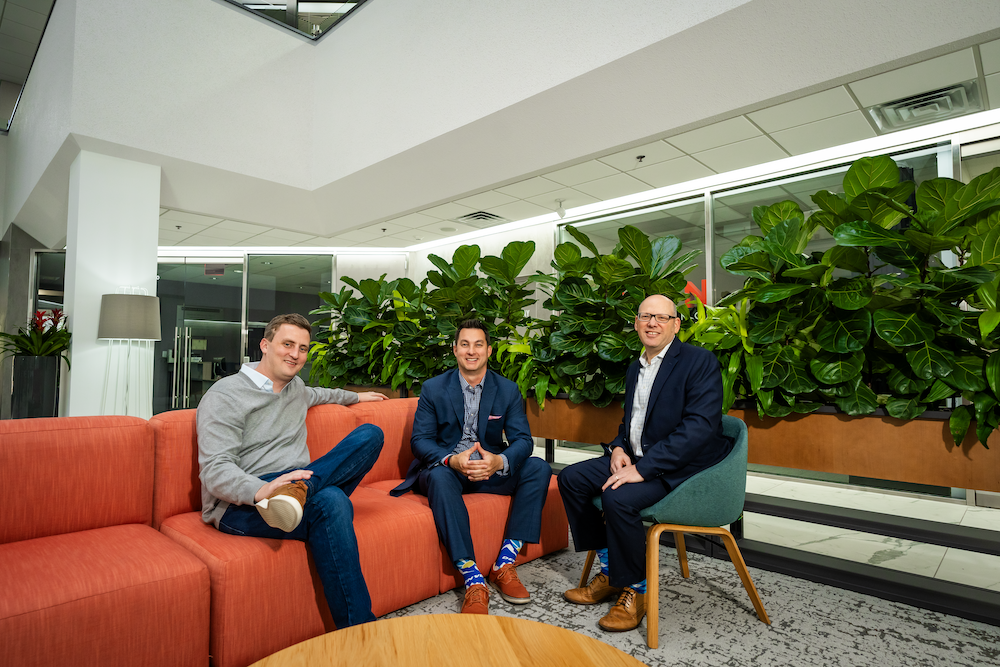
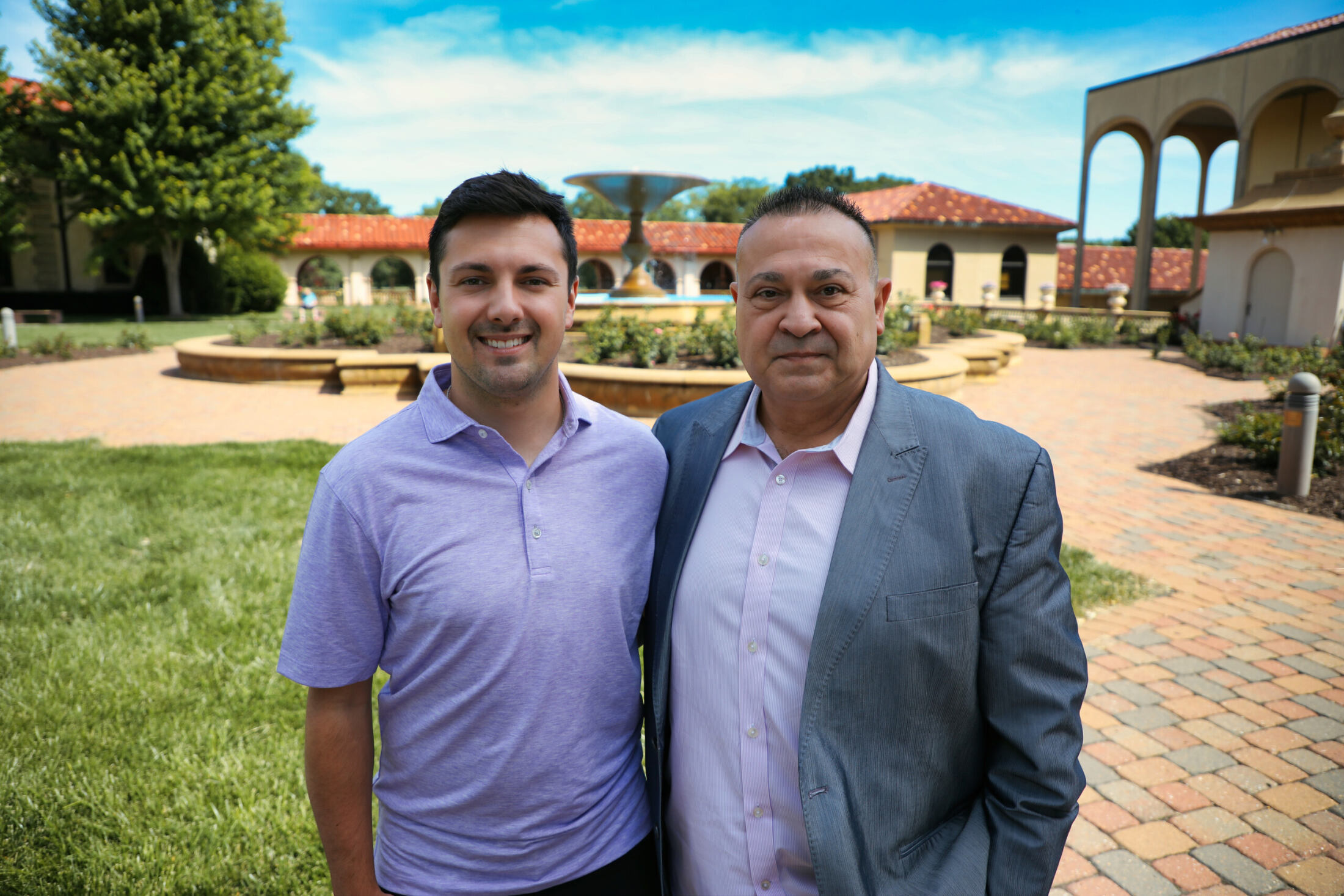




Leave A Comment